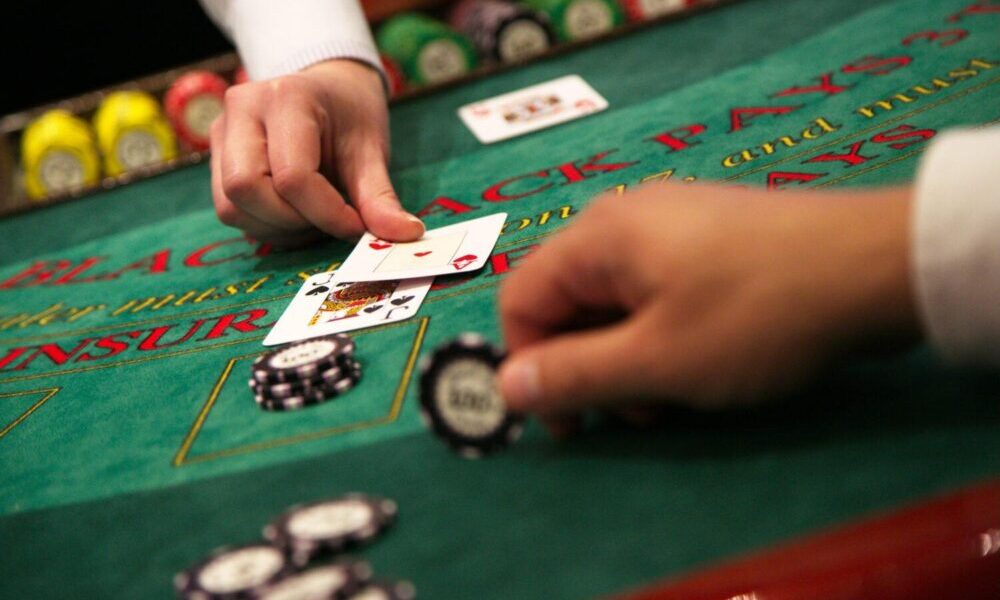Michael Kaplan, a keynote speaker at the World Game Protection Conference in Las Vegas March 11-13, said advances in artificial intelligence will create more opportunities for players to crack casino games.
At the conference at the Rio Las Vegas, Kaplan will talk with WGP founder Willy Allison about his fifth book, Advantage Players — Inside the Winning Worlds of World of Casino Geniuses, Master Strategists, and Mathematical Wizards, coming out soon from Las Vegas-based Huntington Press.
The New York City-based Kaplan, a senior features writer for the New York Post and a gambling columnist for Cigar Aficionado, said his magazine article on advantage player Cheung Yin “Kelly” Sun is being developed into a feature film.
Kaplan has spent years hanging around advantage players, gamblers who figure out ways to beat casino games legally. With unprecedented access, he learned how they gain an advantage at whatever games they play — without revealing all their secrets.
“Advantage play is alive and well and there’s not a lot the casinos can do to stop it,” Kaplan said. “Players are always figuring out ways to win. They do it for a living, to make money. A lot of money. They work pretty hard at it.”
Soft games are especially prevalent in casinos overseas, where advantage players, commonly known as “APs,” look for bonuses and unusual payouts they can take advantage of.
“One way is to use computer models when a new game is introduced to see what can be exploited. But they do everything they can to figure out how to beat these games without doing anything that might land them in jail. No matter what the casino sets up, some players are smart enough to devise ways to overcome it.”
According to Kaplan, the emergence of AI will give players a “leg up on how to beat games.” With AI, computer modeling and simulations become easier and better, helping APs find their edges.
“It’s not like they’re bringing a computer into a casino,” Kaplan said. “Casinos can’t stop you from using a computer in your house. As one person told me, ‘Any game at any time can be beaten by someone under certain circumstances.’ The casinos are up against it.”
Among the gamblers highlighted in Advantage Players is Kelly Sun, known as the “Baccarat Machine.” Her play was “edge sorting,” in which knowledgeable players recognize and exploit subtle asymmetries on the backs of the cards being dealt. They “read” the cards’ values before they’re dealt, which gives them a huge advantage.
“She teamed up with Phil Ivey, whom casinos viewed as a reasonable player with favorable conditions, and let them play for high stakes. Identifying the cards before they had to bet was ridiculously profitable. They made tens of millions of dollars in less than a year.”
Sun and Ivey lost their lawsuit when a London casino, Crockfords, failed to pay, and they were sued by Borgata Atlantic City to get millions in winnings back in a case that was eventually settled.
Another chapter is about James Grosjean, considered the all-time greatest AP. Kaplan spent time with him in Indiana on a riverboat with a new game and it seemed like he knew more about the game than the developer. Kaplan also played with Grosjean on a card-counting team in a crap game that used cards instead of dice. He said he made a couple of thousand dollars a day. Grosjean has written several books on how to beat a variety of games and “is still going strong,” Kaplan said.
Also featured in Advantage Players is Don Johnson, one of the winningest casino players of all time and a member of the Blackjack Hall of Fame. Barred at casinos from coast to coast, he now focuses computer models on horse racing, which is pari-mutuel.
“Johnson had Grosjean and Grosjean’s partner create a model for him and they sat at the blackjack tables with him. They were hole carding and shuffle tracking and signaling Johnson on what to do. You can’t really do it anymore, but it’s a case study on how a serious player takes a big bite of money out of casinos.”
Anyone can become an advantage player. It’s about finding a game, learning something others haven’t noticed, and exploiting it, Kaplan said. “They definitely look for weak dealers who are showing hole cards and will pounce on those games and play them forever,” Kaplan said.



